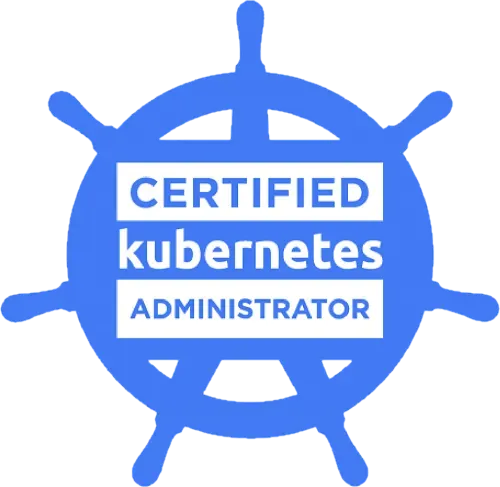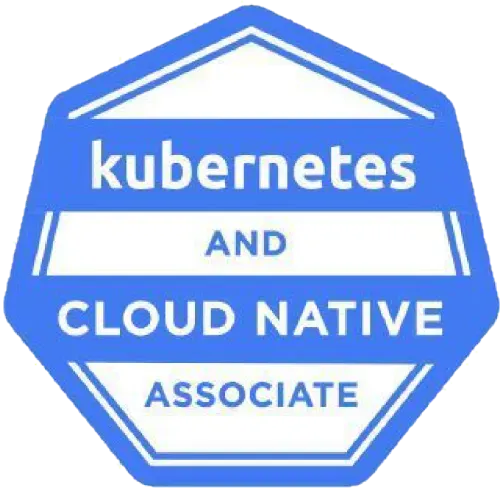Linux Learning Path
The Linux Learning Path offers a comprehensive journey for individuals looking to gain proficiency in Linux. This learning path provides learners with a plan for gaining foundational knowledge through specialized certification preparation.
How long will it take for me to be certified?
Success!!
Test your Readiness for Free!
Topic based learning paths
CKA
CKAD
CKS
KCNA
Role based learning paths
FAQs
Why should I learn Linux?
Linux is a widely used operating system, especially in server environments. Learning Linux can open up various career opportunities in system administration, DevOps, cloud computing, and cybersecurity. It is also a powerful tool for developers and provides a free and open-source platform for experimentation and learning.
Where should I start my Linux learning journey?
- If you are new to Linux, it's recommended to start with a beginner-friendly Linux for Beginner course, which comes with hands-on labs, so you won't need to set up your system before starting your learning journey.
- Start your learning journey by familiarizing yourself with the basic Linux commands, file management, and package management using the command-line interface (CLI).
Should I learn Linux command-line or focus on graphical user interfaces (GUI)?
While Linux does have GUI options, it is highly recommended to learn the command-line interface (CLI) as it provides more power and flexibility. The CLI is widely used in server environments and automation scripts. It also helps in troubleshooting and provides a deeper understanding of the underlying system.
Are there any certifications for Linux?
Yes, there are several certifications available for Linux, such as LFCS (Linux Foundation Certified System Administrator), RHCSA (Red Hat Certified System Administrator), and LPIC (Linux Professional Institute Certifications). These certifications validate your skills and knowledge in Linux system administration and can enhance your career prospects.
What is the recommended progression in the Linux learning path?
Here is a general progression for the Linux learning path:
- Start with the basics: Learn Linux commands, file management, and basic system administration tasks.
- Gain proficiency in shell scripting: Automate tasks and write scripts using Bash or other scripting languages.
- Explore networking and security: Understand network configuration, firewalls, and basic security practices.
- Dive into system administration: Learn about system services, user management, package management, and troubleshooting.
- Familiarize yourself with server administration: Gain knowledge of web servers, database servers, and virtualization technologies.
- Continuously practice and expand your knowledge by exploring advanced topics like cloud computing, containerization, and automation tools.
LFCS vs RHCSA vs LPIC which exam to go for?
Deciding which exam to go for among LFCS, RHCSA, and LPIC depends on your specific goals, career path, and preferences. Here are some factors to consider:
- Vendor-specific vs. vendor-neutral: RHCSA is a Red Hat-specific certification, while LFCS and LPIC are vendor-neutral. If you are interested in working specifically with Red Hat-based systems or seeking a career within Red Hat's ecosystem, RHCSA may be the preferred choice. On the other hand, if you want a broader understanding of Linux and the flexibility to work with various distributions, LFCS or LPIC might be more suitable.
- Exam content and focus: While there may be some overlap in the exam objectives, each certification has its own specific focus. RHCSA emphasizes practical skills and knowledge needed for Red Hat Enterprise Linux administration. LFCS covers a broader range of Linux system administration topics, including multiple distributions. LPIC provides vendor-neutral knowledge and covers a wide range of Linux administration concepts.
Are there any prerequisites for LFCS, RHCSA, or LPIC-101 certification?
There are no formal prerequisites for the LPIC-101 certification. However, RHCSA certification typically requires basic knowledge and experience with Linux systems. LFCS certification does not have strict prerequisites but is designed for individuals with some experience in Linux system administration.
How long are LFCS, RHCSA, and LPIC-101 certifications valid?
LFCS and RHCSA certifications are valid for three years, after which you can renew them to maintain your certification validity. LPIC-101 certification is also valid for five years, and you can renew it by passing higher-level LPIC exams or re-taking the LPIC-101 exam.

.svg)





.svg)








.svg)




.svg)







